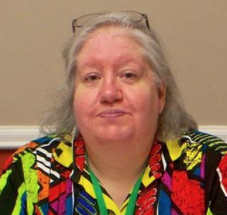In the 20th century Americans decided to provide a means by which the financially fragile need not die because they could not afford healthcare. The program was called Medicaid. For many years, the program did what it was meant to do but as insurance payments grew, as did coverage loopholes, a large gap was created of individuals who could not obtain health insurance.
The ACA was created to deal with the gap and deal with the loopholes which prevented individuals from obtaining insurance. Prior to the ACA, 20.4% of Kentuckians were without insurance. After the ACA, the uninsured rate more than cut in half and those who had been without were grateful to be able to go to the doctor without choosing between health care and food or rent.
Governor Bevin’s reinvention of Kentucky’s Medicaid plan is vastly different. He discusses in the plan the difficulties caused because more people applied and qualified than was expected as though it was the fault of the working poor that they were underpaid. Instead of suggesting that the minimum wage be increased or that businesses receive tax incentives to hire more people full time, the Governor choose to belittle and punish the working poor, the mothers with children and the disabled. While suggesting that the working poor should have ‘skin in the game’, it’s fascinating that while he patronizingly suggests that Kentuckians are lacking in basic skills to deal with insurance, he never discusses any expectations of employers to raise their wages or hire more people full time.
Apparently, he doesn’t feel they need to pay a living wage.
Impeding access
While he claims that his aim is to improve healthcare many of his decisions impede individuals from obtaining healthcare.
I question removing the medical transportation from rural areas of Kentucky where poor individuals neither have a car nor public transportation. Exactly how does that improve their medical outcomes if they have no means of getting to their doctors?
And it’s impossible to see how treating items such as glasses, hearing aids and dental care as though they were luxury items would assist people in moving into employment. If an individual cannot see without glasses or hear without hearing aids, how are they supposed to participate in these “My Rewards” activities that they need to accomplish in order to get them? I would like to see how treating glasses and hearing aids in this fashion would be seen by the Americans with Disabilities Act. It speaks volumes that the Governor feels that the ability to see and hear are on the same par with a gym membership.
Continuing with the subject of the disabled on Medicare, how are they supposed to receive the employment assistance you suggest those in the program will receive when you’ve been cutting hours at Office of Vocational Rehabilitation? Will there any means of assisting or protecting those with development delays, people on the spectrum or those with learning disabilities who may have difficulty navigating this complicated plan or will they just fall through the cracks and lose their healthcare?
And will nurses’ lines be set up so that people can be told if their symptoms will qualify for an emergency room visit? If there aren’t, the Governor is expecting poor people to play Russian Roulette with their health. If they go and they are right, it’s OK. If they go and they were wrong, they incur a bill they cannot pay and risk losing their health insurance. And if they don’t go because they fear the bill, they can die.
This plan does have a couple of positive aspects like classes on smoking reduction and helping people with diabetes. Those aspects could simply be added to the KYnect plan with little cost or disturbance of people’s health care. Unfortunately, this plan uproots a perfectly good plan, removes necessary benefits, and creates plenty of situations where qualified Kentuckians will lose their health care and makes it more difficult for people to access their healthcare. So why reinvent the wheel and make one that doesn’t work as well? Why create a healthcare plan which comes across less like a life-raft for the needy and more like a scene from the show Survivor?
Well, that makes more sense when you remember that the plan is not to protect the health of the most financially frail, it’s to save the state money while creating the illusion of health care for the working poor and disabled. The Governor’s contempt and disrespect for those working at minimum wage is apparent throughout the plan. He doesn’t want them to have ‘skin in the game,’ he expects a ‘pound of flesh’ from those who dare to be poor.

Rene Thompson is a longtime Kentucky resident, devoted wife, mother, and disabilities advocate as well as a published writer and the co-creator of the online super-hero comic strip, Ms. Molecule.

















